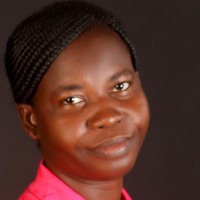Land use practices for low emission strategies: Comparative analysis of South Africa and Ghana
Introduction
Although South Africa has higher greenhouse gas (GHG) emission levels, it has the capacity to tackle them. As an active participant in the Kyoto and Poznan processes, South Africa is also committed to mitigating climate change and has recently developed long-term mitigation scenarios [1]. After a brief description of the land use management system in South Africa and the status quo regarding greenhouse gas emissions, the paper examined the opportunities for the land use management system to contribute to low(er) carbon emissions in cities, and the obstacles that could hamper these efforts.
Methodology
The report on emissions in South Africa (1999) and Ghana (2009), data, and secondary data available from FAOSTAT, Intergovernmental Panel on Climate Change (IPCC), and the WBI (World Bank Indicators) gap report were used for this study, as were the land use data as reported by FAOSTAT for South Africa and Ghana. Estimates were then made from the available emission data for South Africa and Ghana to project the future situation with respect to business-as-usual scenarios and the implementation of land use strategies. The estimates were made up to the year 2020 with 3.4% reduction and 2025 with 8.4% reduction in emissions, respectively.
Results
There is unquestionably scope for the South African land use management system to make a meaningful contribution to lower-carbon cities. In the broad conceptualization of land use management adopted by South Africa, both spatial planning and regulatory components exist, but must be enforced consistently to ensure compliance. For the land use management system to succeed as an effective tool in creating lower-carbon cities there must be political will at all levels of government to ensure that the measures described above are approved and implemented according to the extrapolated emission trend reduction by 2020 and 2025, if South Africa is to have 3.4% and 8.4% reductions, respectively. According to the optimistic scenario, if land use strategies are implemented, emissions will be reduced by approximately 279 MtCO2 by the year 2020 and by 162 MtCO2 by the year 2025.
Conclusion
This study shows that afforestation activities are already eligible for the Clean Development Mechanism (CDM), and REDD (Reducing Emissions from Deforestation and Degradation) is being considered for inclusion in a post-Kyoto climate regime. However, the potential contribution of agricultural land management to climate change mitigation is not recognized in the case of Ghana. Yet this is the critical element to establish landscape-scale mitigation projects that fully account for land use change.
References
[1] Winkler H (2008). Long Term Mitigation Scenarios (LTMS), Energy Research Centre (ERC).
Supervisors
Matthias Jonas, Advanced Systems Analysis Program, IIASA
Oukouomi Noutchie, Northwest University, South Africa
Note
Onawumi Olufiasayo of the Kwame Nkrumah University of Science & Technology, Ghana, is a citizen of Ghana and was funded by IIASA’s South African National Member Organization during the SA-YSSP.
Please note these Proceedings have received limited or no review from supervisors and IIASA program directors, and the views and results expressed therein do not necessarily represent IIASA, its National Member Organizations, or other organizations supporting the work.

CONTACT DETAILS
Principal Research Scholar Exploratory Modeling of Human-natural Systems Research Group - Advancing Systems Analysis Program
Principal Research Scholar Systemic Risk and Resilience Research Group - Advancing Systems Analysis Program
Principal Research Scholar Cooperation and Transformative Governance Research Group - Advancing Systems Analysis Program
Further information


